
Edwin D. Nuñez
@EdwinNunez1646
Reformed Catholike. Computer Science. Early Modern Scholasticism, Theology, and Philosophy. “Nihil est enim simul et inventum et perfectum.” ✍️ @PostRefDL
Rid yourself of the Apologetics brain and embrace the happiness of real life, literature, and friends/family.

We are indeed firmly of the opinion that Mary never lost her virginity (nihil vnquam de virginitate Mariae fuisse delibatum), and no one will change our mind about that with arguments. ~ Amyraut
“[T]he word ‘reprobation’ can rarely be used in any particular question without some of the added clarifying terms. But through this distinction, the opinions of many are reconciled, which actually agree among themselves, though they seem to be contrary to each other. Yet they…
![EdwinNunez1646's tweet image. “[T]he word ‘reprobation’ can rarely be used in any particular question without some of the added clarifying terms. But through this distinction, the opinions of many are reconciled, which actually agree among themselves, though they seem to be contrary to each other. Yet they…](https://pbs.twimg.com/media/Gvh9pnSWwAAkTlb.jpg)
“On the point of Predestination and Reprobation, the Reformed, at this time, commonly follow the Thomists and Bellarmine; and we should not scrupulously investigate what they thought before this.” — Tractatus speciales de controversiis fidei, vol. 2 (Cologne: Apud Ioannem…

"The conclusion which Bellarmine places at the end of ch. 9—that good works are necessary for salvation, not only in presence, but also in some kind of efficiency, and that they contribute to salvation in their own mode, no less than faith—is most certainly admitted by even many…
Finally getting back to working on my video concerning “double predestination” among Catholic scholastics. This comment will serve as a helpful, basic definition of what’s being said when using the terminology (if one wishes to use it). “Est autem praedestinationis acceptio…
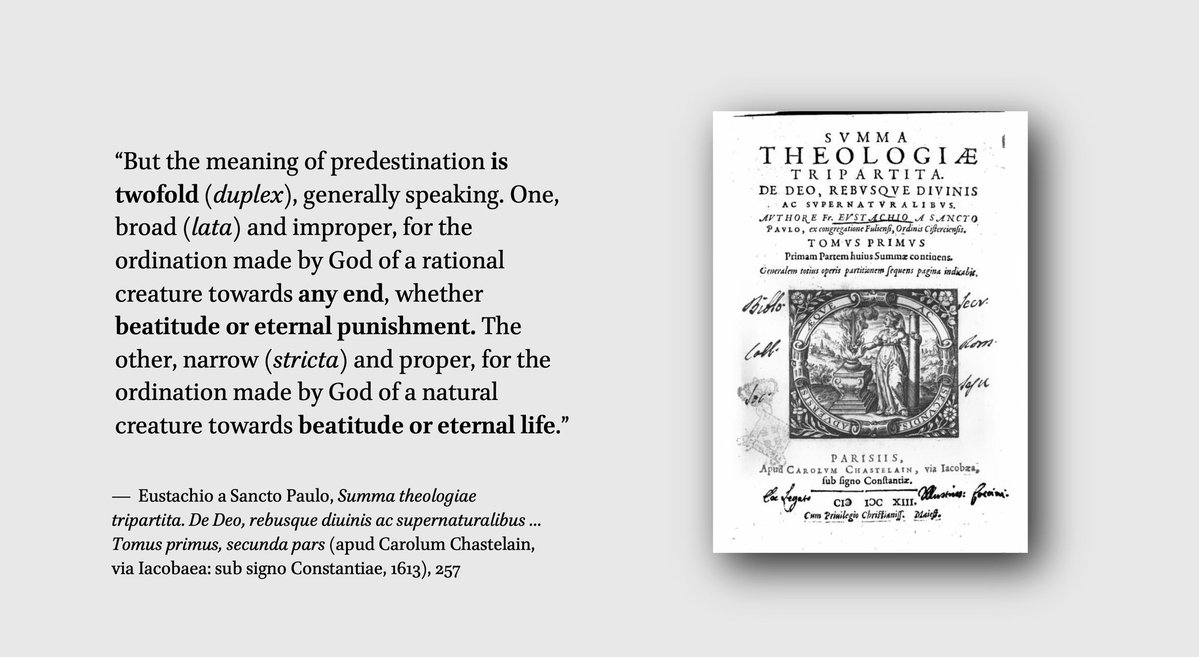
“[F]rom his reprobation follows sinne and unbelief, but every consequent is not an effect. Sinnes follow reprobation, damnation sinne, but though sinne be the cause of damnation, reprobation is not the cause of sinne; otherwise then as the non-shining of the Sun is the cause of…
“For, as Augustine rightly teaches, God does not harden by imparting malice, but by not imparting mercy. Just as the sun, when it sets and withdraws its rays, is said to darken the air—not by some positive influx that causes darkness, but by the removal of that influx by which,…
“Heere riseth a question, whether there be an absolute decree of Reprobation? If wee vnderstand an absolute decree to be such as dependeth vpon the onely will of God, without respect to any other thing, then I confesse, I cannot vnderstand any such absolute decree in this. For…

Here is my translation of Robert Bellarmine’s treatment on the cause of reprobation being ascribed partly to the will of God, partly to foreseen sins (and how that’s parsed out), for anyone interested in reading it. drive.google.com/file/d/1xGrrGy…

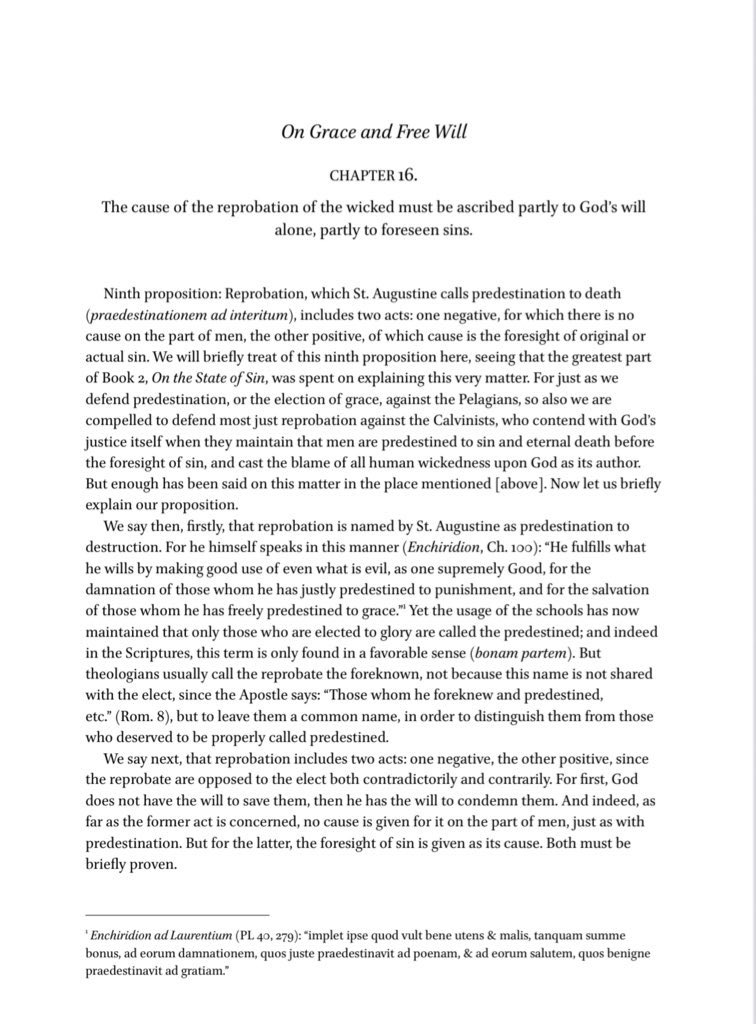
Surely this book will quote, reference, and/or cite early modern Reformed commentaries on Romans, right? I sure hope so!
It's here! 🎉 I'm thrilled to reveal the title (and cover!) of my new book: Coming July 4th on Amazon. #Newbook
“Reprobation, with respect to the first effect, which is the permission of sin (which some call negative) has no cause on the part of man. On this point also, as it lies, there is agreement among everyone.” — Raphael Ripa, O.P. Ad S. Thomae Aquinatis totam Primam partem…
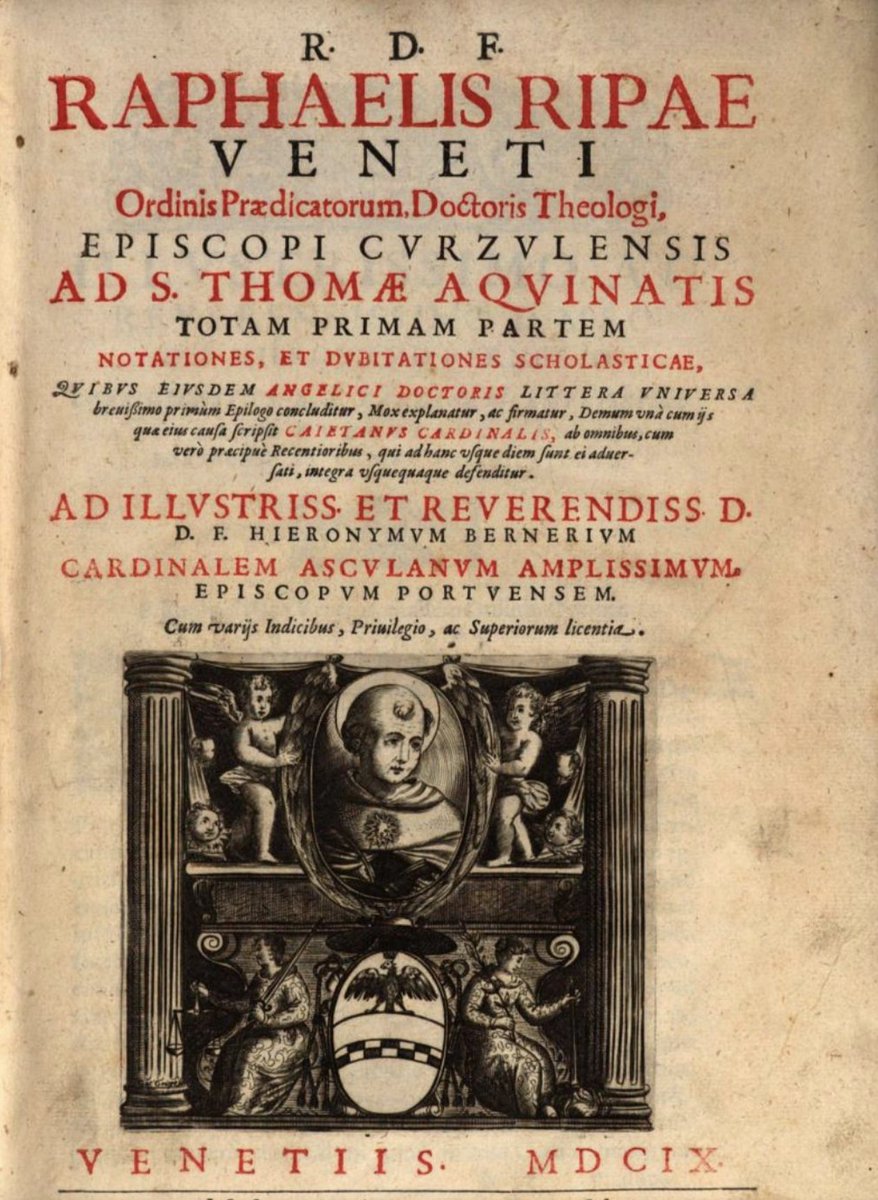
“In this passage [De Perfectione Justitiae Hominis, ii], Augustine calls by the name of thing, that which is a thing simply (res simpliciter), viz., substance; for in this sense the act of sin is not a thing.” — ST. I-II. Q. 79. A. 2. Rep. 1 aquinas.cc/la/en/~ST.I-II…
![EdwinNunez1646's tweet image. “In this passage [De Perfectione Justitiae Hominis, ii], Augustine calls by the name of thing, that which is a thing simply (res simpliciter), viz., substance; for in this sense the act of sin is not a thing.”
— ST. I-II. Q. 79. A. 2. Rep. 1
aquinas.cc/la/en/~ST.I-II…](https://pbs.twimg.com/media/GuLa-aaWkAAlAQh.jpg)
"I am aware that I am not managing a controversy with Enemies but with Brethren." - Edmund Calamy (1671-1732) in A Defense of Moderate Non-conformity (1703).
“Although I will not censure (proscindam) Luther, Calvin, and other doctors as their thankless students do, I am still not bound to embrace all they ever said as the common teaching of our churches.” — Gisbertus Voetius, Thersites heautontimorumenos (Utrecht: Ex Officina…

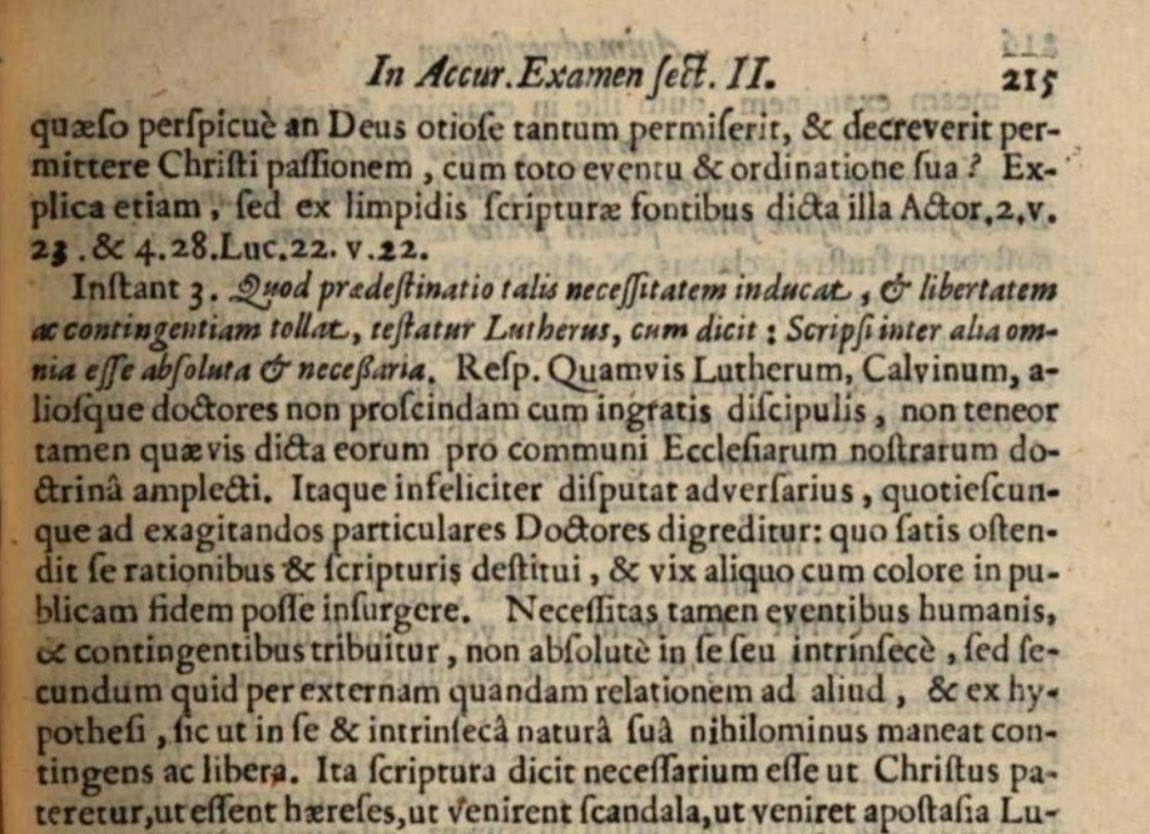
*Studies church history for 20 years > Has never heard of a single Jacobean or Caroline divine
The funniest thing is that, despite spending the last 20 years reading nothing but church history, I've never heard any of the names on his list.
“To be brief: I say that the will is evil not by nature (that is, by God’s creation) but by the corruption of nature [ … ]. Nor do I imagine that a new product or a new creature is made in such a way that with the destruction of the former substance, a new one takes its place.…
![EdwinNunez1646's tweet image. “To be brief: I say that the will is evil not by nature (that is, by God’s creation) but by the corruption of nature [ … ]. Nor do I imagine that a new product or a new creature is made in such a way that with the destruction of the former substance, a new one takes its place.…](https://pbs.twimg.com/media/GrZvAeKWMAAM1LK.jpg)
Grateful that some Roman Catholics understood and agreed with the joke here, but if you want to see how far the apologetics brain has perverted the minds of others, see the cringe responses to this!
Whenever a cringe lay Catholic or an apologist pejoratively refers to “Pastor Bob’s” church, remind them that they unironically have a Pope Bob now.
Whenever a cringe lay Catholic or an apologist pejoratively refers to “Pastor Bob’s” church, remind them that they unironically have a Pope Bob now.
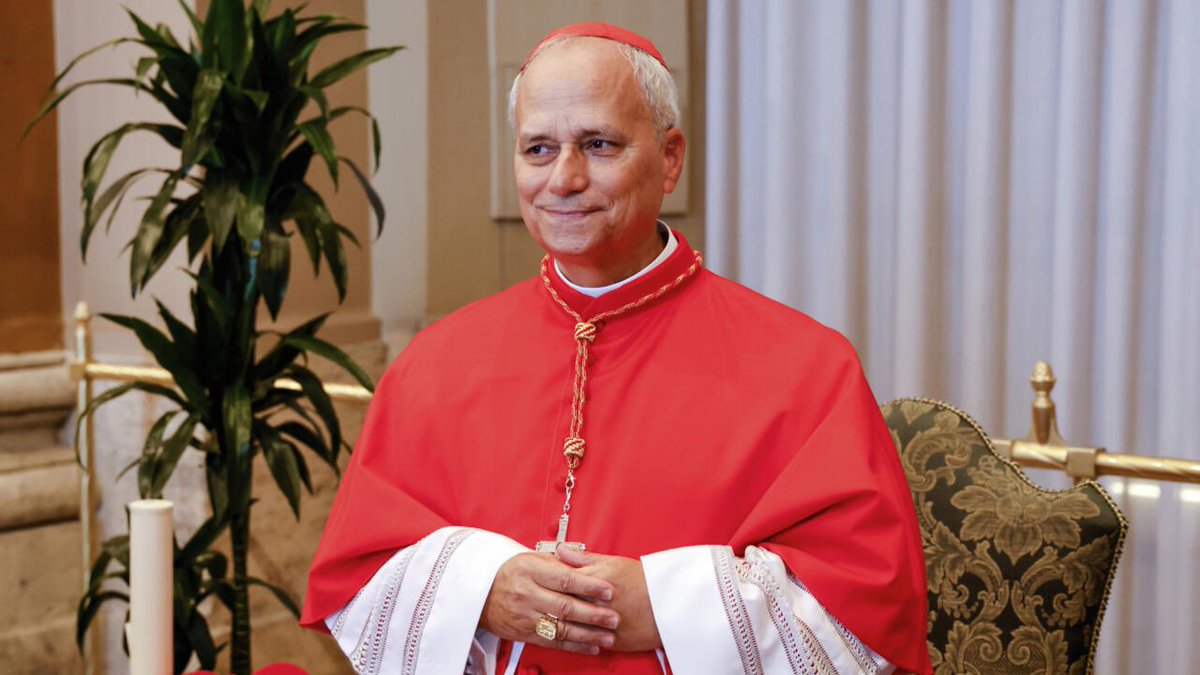
“[T]he decree by which God sends someone to eternal punishment is indeed predestination (vere est praedestinatio). For so it is called in the [Third] Council of Valence, under Emperor Lothair, Ch. 3, Fulgentius in ad Monimum, Book 1, Ch. 13, St. Prosper in Responses to the Gallic…
![EdwinNunez1646's tweet image. “[T]he decree by which God sends someone to eternal punishment is indeed predestination (vere est praedestinatio). For so it is called in the [Third] Council of Valence, under Emperor Lothair, Ch. 3, Fulgentius in ad Monimum, Book 1, Ch. 13, St. Prosper in Responses to the Gallic…](https://pbs.twimg.com/media/GqwGUTpXwAAhRxv.jpg)
A reminder that Robert Bellarmine (1542-1621) says that Augustine refers to reprobation as “predestination to destruction” (ad interitum), and that though the schools and Scripture itself restrict “predestination” to the elect, “reprobation includes two acts” (i.e., negative and…
“There is,” says [Bellarmine], “no cause from the side of the human being for the act by which God does not have the will to save the reprobates.” Likewise: … he does not liberate another, because it pleases him.” — Andre Rivet (1630), Vol. 2, p. 403 books.google.com/books/about/An…